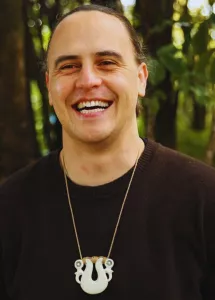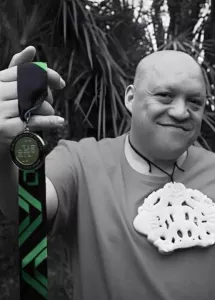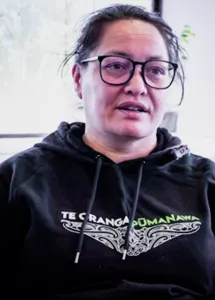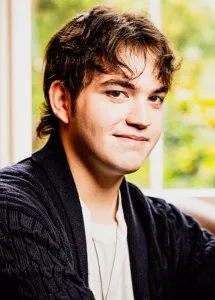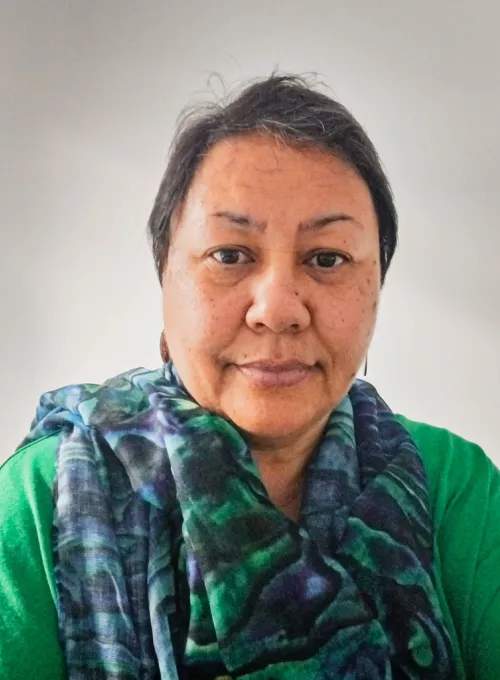
Kia mau ki te aka matua, te toi huarewa o ngā tūpuna
Hold fast to the wisdom of your ancestors
The above whakataukī speaks to the essence of mātauranga and tikanga that motivates Ruth Herd in her mahi to improve problem gambling outcomes for Māori. Dr. Herd began her career as an art teacher in Māori medium immersion settings and moved into the addictions sector in 2001, creating resources for the alcohol and drug sector, including a kete distributed at the 2002 Te Matatini National Kapahaka Festival.
A passionate advocate for wāhine Māori, Ruth’s contributed focus on gambling led her to establish Wāhine Tūpono, a support group addressing problem gambling, contributed to the development of Te Ngira, a public health problem gambling plan, and Te Kakano, a workforce development project. In more recent times, Dr.Herd wrote WAI 1909 – The Waitangi Tribunal Gambling Claim: How will it Improve the Health Outcomes for young Māori People, as part of her claim to the Waitangi Tribunal.
As an inaugural recipient of Te Rau Ora’s Hoe Wha Problem Gambling Award, Ruth’s research informed her Doctor of Health Science thesis, Tirohanga Taiohi, exploring taiohi Māori perspectives on gambling within their communities. This work led to the creation of the TEKA Model, a culturally grounded public health framework for gambling.
Dr Herd has held several influential roles, including her current position as Māori Health Equity Lead at the Royal Australasian College of Surgeons, supporting Māori health initiatives across Aotearoa. Her previous roles include Pae Ora Kaimanaaki with Auckland Regional Public Health Service (ARPHS), where she advocated for whānau wellbeing, and was part of the researcher team working at Whānau Ora | Ko Te Wā Whakawhiti, working on the Māori Inquiry into Oranga Tamariki.
Dr Herd worked at ARPHS and was two years in the COVID Response Unit as Pae Ora Kaimanaaki . She is now at the College of Surgeons, to lead and implement the Te Rautaki Māori- Māori Health Strategic Plan and is also the secretariat for the Māori Health Advisory Group, Te Rautaki Māori – RACS Māori Health Strategy and Action Plan | RACS. Dr Herd is part of the team working Te Rau Poka- Māori Surgical Academy Te Rau Poka – Māori Surgical Academy | RACS
Academically, Ruth holds a Doctor of Health Science (DHSc) from AUT University (2018) and a Master of Education(MEd) in Māori Education from the University of Auckland (2006). Her career reflects her dedication to tikanga and mātauranga Māori, ensuring that Māori perspectives on health are heard, respected, and acted upon. Driven by aroha and commitment to whānau, hapū, and iwi, Dr. Herd continues to be a leader in advocating for Māori health and wellbeing.
Links:
Dr Ruth Herd removing a tumour from a lung laparoscopically
Whānau Ora | Ko Te Wā Whakawhiti
Professor Denise Wilson, Tainui, Professor of Māori Health Auckland University of Technology
Updated 18 November 2024
